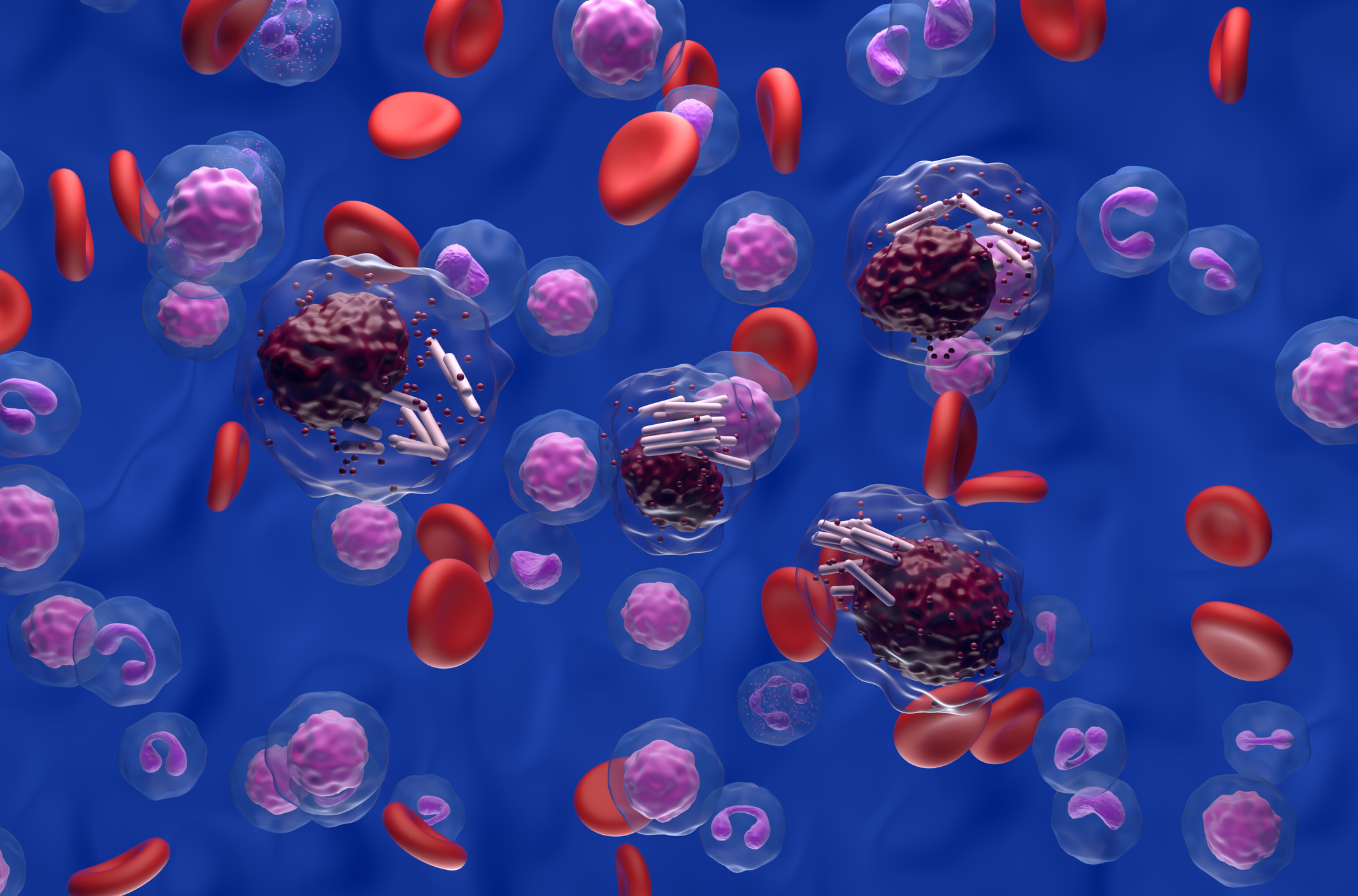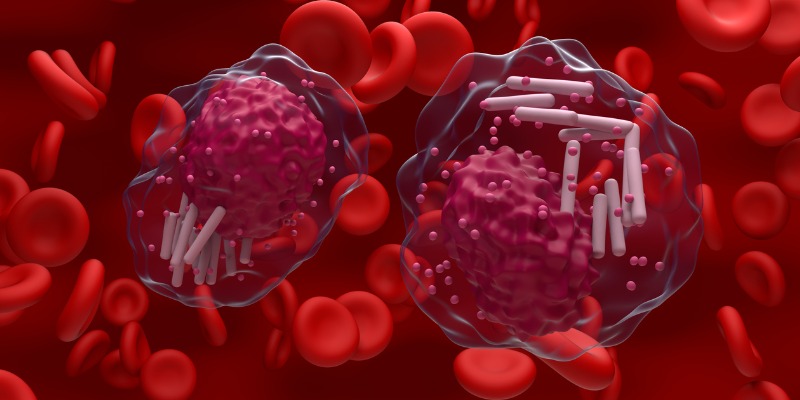
At the Fourth Annual National General Medical Oncology Summit held in Miami, Florida, host Neil Love, MD, president and CEO of Research to Practice, moderated an expert panel on chronic lymphocytic leukemia (CLL) management. The panel included Nicole Lamanna, MD, of New York-Presbyterian/Columbia University Medical Center, Kerry Rogers, MD, of The Ohio State University, and Savan Shah, MD, of Florida Cancer Specialists and Research Institute.
Dr. Lamana gave a presentation on use of covalent Bruton tyrosine kinase (BTK) and B-cell lymphoma 2 (BCL-2) inhibitors in CLL. She noted that comparative trial data for these agents may not necessarily show one as absolutely superior to another, and so it is important for clinicians to closely discuss with patients the strategy they want to pursue.
Also, during this panel, Dr. Rogers presented notable clinical trial data regarding novel agents and combination therapies for CLL. She mentioned that based on the data for high-risk disease, there is strong evidence for use of progressive BTK inhibitors and that regimens combining BTK inhibitors and BCL-2 inhibitors should see greater use now.
“They are effective, have a fixed duration, and help against molecular resistance and need for retreatment,” Dr. Rogers said.
Several considerations are involved in the use of these agents, underscoring the importance the panel placed on close discussions with patients. Comorbidities are an influential factor, with Dr. Rogers and Dr. Shah both mentioning that for patients with heavy comorbidities, use of a BTK inhibitor, such as pirtobrutinib, is advisable. Patients might prefer a time-limited versus a long-term approach, although Dr. Lamanna noted that many develop a resistance to time-limited therapy. The benefit of these agents also varies by presence or absence of a mutation. Dr. Rogers noted that in the AMPLIFY study, addition of obinutuzumab evened out progression-free survival (PFS) outcomes between patients with IGHV-mutated disease and those without IGHV– mutated disease.
“In the era of chemoimmunotherapy, persons with TP53 mutation did badly. They now do much better with targeted therapies. These therapies are a gold standard now,” Dr. Lamanna mentioned.
Dr. Love asked the panel members about their experience with adverse effects from these agents. Dr. Lamanna and Dr. Shah cited headaches with zanubrutinib, which Dr. Shah said are mostly controllable with acetaminophen and Dr. Lamanna said can be managed with dose reduction or timing change. Dr. Lamana noted that headache mainly occurs among her patients treated with acalabrutinib, which usually results in relief, but she may still perform brain imaging because of bleeding risk. Dr. Shah highlighted insomnia as an effect he has seen, and Dr. Rogers’ patients’ often have anxiety, which she counters with dosing schedule changes. Regarding ventricular arrhythmia–related deaths that have occurred in ibrutinib studies, Dr. Lamanna said these are seen less with acalabrutinib and zanubrutinib and that there are fewer cardiovascular events.
The panel also touched on the utility of subsequent chimeric antigen receptor (CAR) T-cell therapy for their patients, with Dr. Lamanna saying that a caveat of CAR T-cell therapy is that for it to be effective, the patient must have had a good response to the preceding treatment. Dr. Rogers added, “I have many patients who are fit but don’t agree to CAR-T and are not impressed with CR [complete response] rates with CAR-T.”
The experts also explored the use of measurable residual disease (MRD) within CLL treatment decision-making. Dr. Lamanna said most patients with CR in CLL continue to have MRD, but MRD may help stratify patients for use of a time-limited approach. Dr. Shah noted that in the AMPLIFY trial data, patient MRD was not reflective of PFS, a limitation he said is seen not only in CLL. Dr. Rogers said MRD can be useful in patient counseling, but she has seen no current data to support using it as the basis for continuing or discontinuing a therapy.
“If we agreed to a fixed duration with the patient, and they finish it, that’s it,” Dr. Rogers said, adding that later retreatment is an option.
References
Lamanna N. Treatment options for CLL patients. Presented at: The Fourth Annual National General Medical Oncology Summit; February 28 to March 3, 2025; Miami, Florida.
Rogers KA. CLL: novel agents and combination strategies. Presented at: The Fourth Annual National General Medical Oncology Summit; February 28 to March 3, 2025; Miami, Florida.






 © 2025 Mashup Media, LLC, a Formedics Property. All Rights Reserved.
© 2025 Mashup Media, LLC, a Formedics Property. All Rights Reserved.